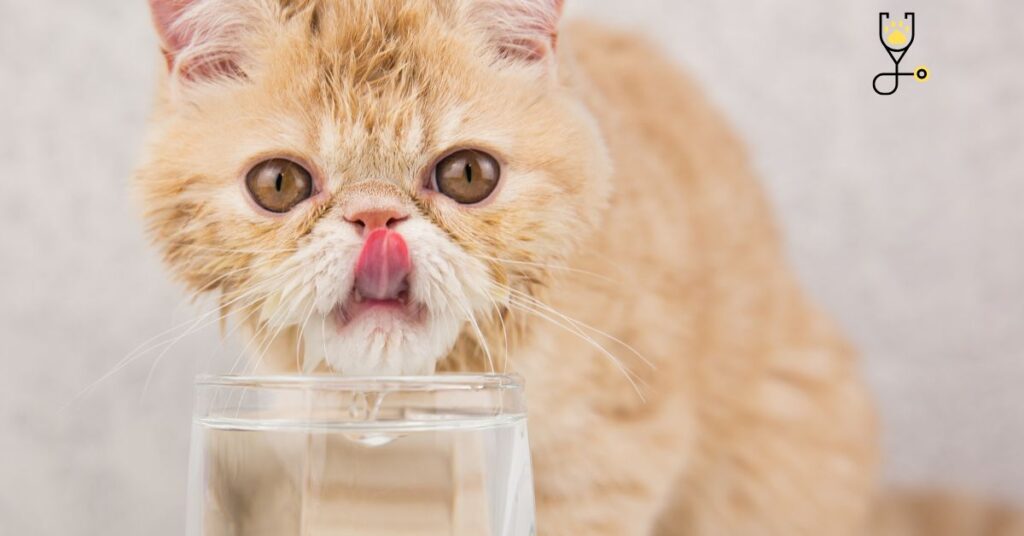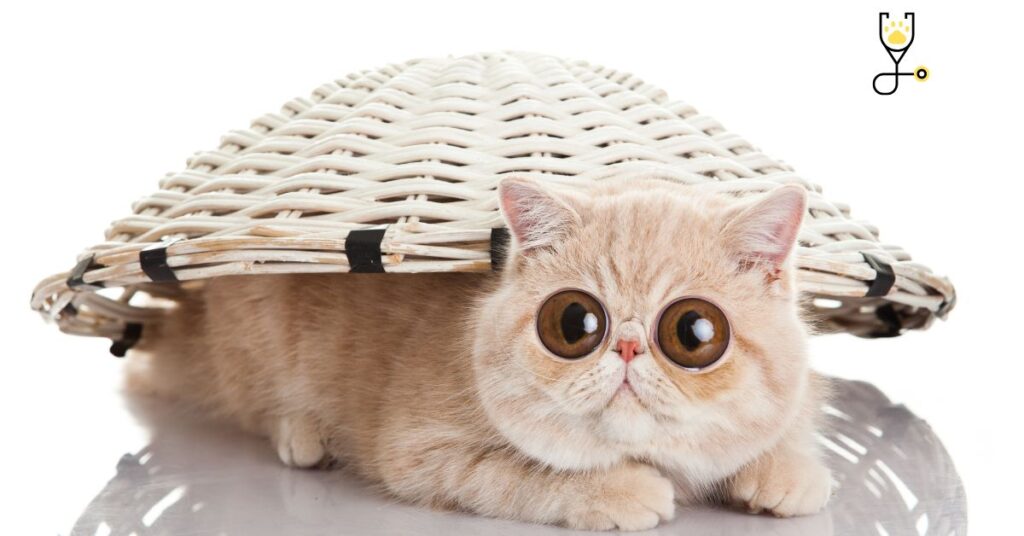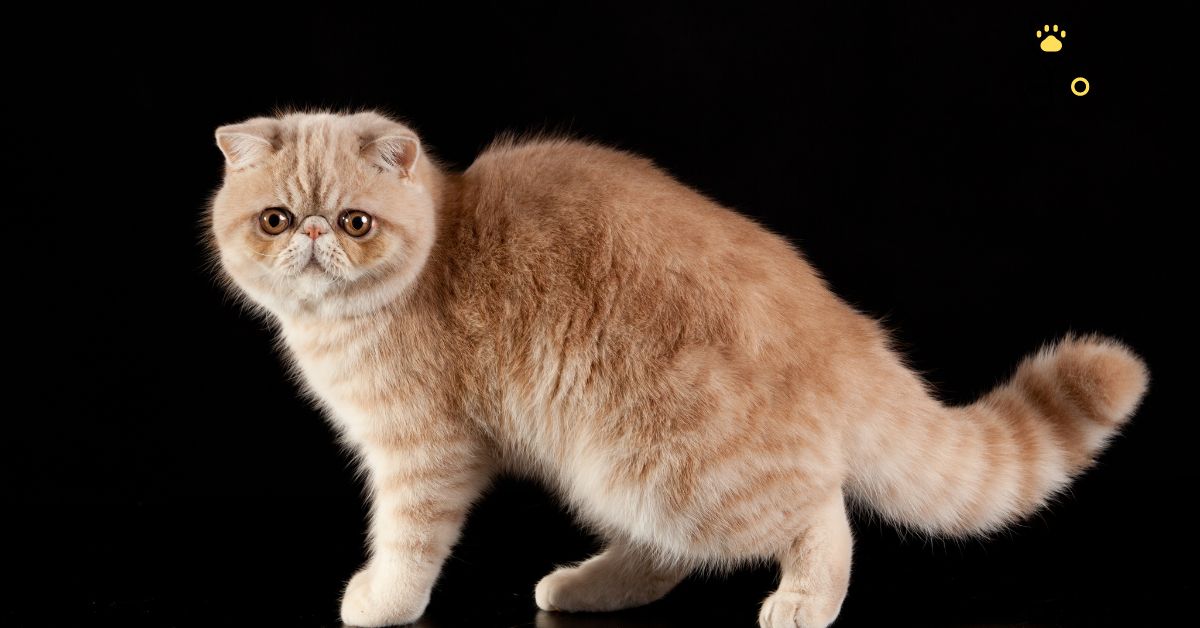Are you thinking of getting a new cat? If so, you may be interested in learning about the Exotic Shorthair breed. This post will tell you all you need to know about these cats, from their personality traits to their care and feeding needs. So if you’re ready to learn more, keep reading!
Breed overview and guide
The Exotic Shorthair is a relatively new breed, having been developed in the 1960s from crosses between Persian and American Shorthair cats.
Coat colour: The Exotic Shorthair can come in a wide variety of colours and patterns, including solids, tabbies, bi-colours and particulars.
Eye colour: Eye colour varies depending on coat colour, but can be green, blue, copper, hazel or amber.
Size: Males weigh around 5-10 pounds, while females weigh around 4-8 pounds.
Personality: Exotic Shorthairs are typically very gentle and easygoing cats, and are good with both children and other pets. They are also generally quite quiet, making them a good choice for households where people prefer a more low-key pet.
Life span: The average lifespan for an Exotic Shorthair is 10-15 years.
Origin: United States
Temperament: gentle, easygoing, quiet
Care and feeding needs

1. Grooming: The Exotic Shorthair has a dense, thick coat that needs to be brushed weekly. It is also important to regularly trim the nails and clean the ears.
2. Diet: A balanced diet is important for all cats, and the Exotic Shorthair is no exception. Make sure to provide them with plenty of fresh, clean water and a high-quality diet that includes all the essential nutrients they need.
3. Exercise: Although they are not an overly active breed, Exotic Shorthairs still need some exercise to stay healthy and maintain a good weight. A scratching post or cat tree is a good way to provide them with some physical activity, and playing with toys will also help to keep them mentally stimulated.
4. Health: The Exotic Shorthair is generally a healthy breed, but there are some conditions to be aware of that can affect them. These include polycystic kidney disease, heart disease and respiratory problems. It is important to have your cat checked by a veterinarian regularly to help catch any potential health issues early on.
5. Training: As with any cat, basic obedience training is not really necessary. However, it can be helpful to teach them simple commands such as “sit” or “stay”, especially if you have other pets in the house.
Best foods for Exotic Shorthairs
1. Royal Canin Exotic Shorthair Dry Cat Food: This food is specifically tailored to meet the needs of Exotic Shorthairs, and is made with high-quality ingredients that will help to keep them healthy and active.
2. Wellness CORE Natural Grain Free Dry Cat Food: This grain-free food is a great option for cats with allergies or sensitivities, and is packed with the nutrients that Exotic Shorthairs need to stay healthy.
3. Nutro Max CAT Indoor Grain-Free Dry Cat Food: This food is designed for indoor cats and is grain-free and high in protein to help keep them lean and muscular.
4. Purina ONE SmartBlend Natural Dry Cat Food: This food is made with real chicken as the first ingredient, and also includes omega-3 fatty acids to help keep your cat’s coat healthy.
5. Blue Buffalo Wilderness High Protein Grain Free Dry Cat Food: This food is grain-free and high in protein, making it a great option for cats who need a little extra nutrition in their diet.
Health problems
1. Polycystic kidney disease: This is a genetic condition that affects Exotic Shorthairs and can lead to kidney failure.
2. Heart disease: Heart disease is relatively common in cats, and Exotic Shorthairs are no exception.
3. Respiratory problems: The Exotic Shorthair’s short muzzle can make them more prone to respiratory problems, so it is important to be aware of this and take steps to prevent it.
4. Obesity: Like all cats, Exotic Shorthairs can be prone to obesity if they don’t get enough exercise or if they eat too much. This can put them at risk for a number of health problems, so it is important to keep an eye on their weight and make sure they are getting enough exercise.
5. Diabetes: This is a condition that affects all cats, but Exotic Shorthairs seem to be especially prone to it. If you think your cat may be diabetic, it is important to take them to the vet for a check-up.
Adopting an Exotic Shorthair
1. If you are interested in adopting an Exotic Shorthair, the best place to start is your local animal shelter or rescue group.

2. You can also check online resources such as Petfinder or Adopt-a-Pet to find Exotic Shorthairs up for adoption in your area.
3. Once you have found a few potential candidates, it is important to meet them in person to see if they are a good fit for your family. This is also a good opportunity to ask the shelter or rescue group any questions you may have about the cat’s history or health.
4. If everything goes well and you decide to adopt an Exotic Shorthair, be prepared to provide them with plenty of love and attention. They are a social breed and enjoy being around people, so make sure you are ready to give them the time and attention they need.
5. Exotic Shorthairs can make great pets for the right family. If you are prepared to provide them with the love and care they need, they will surely bring you years of enjoyment.
Conclusion
The Exotic Shorthair is a popular breed of cat that is known for its playful and friendly personality. They are relatively easy to care for and make great pets for families with children or other pets. If you are looking for a lovable and affectionate cat, the Exotic Shorthair may be the perfect choice for you.
FAQ’s
1. What is the difference between an Exotic Shorthair and a Persian?
The Exotic Shorthair is a cross between a Persian and another shorthaired breed, typically an American Shorthair. They have many of the same physical characteristics as Persians, but their coat is shorter and they require less grooming.
2. Do Exotic Shorthairs like to be held?
Yes, they are a very affectionate breed and love to be held and cuddled. They may even purr when being held, which is always a sign of contentment in cats.
3. Are Exotic Shorthairs good with children?
Yes, they are generally good with children and get along well with other pets. However, as with all animals, it is always best to supervise young children around them to make sure everyone stays safe.
4. Do Exotic Shorthairs require a lot of grooming?
No, they do not require as much grooming as some other breeds of cats. However, they do shed moderately and will need to be brushed on occasion to keep their coat looking their best.
5. Are Exotic Shorthairs prone to any health problems?
Yes, they are prone to some health problems including polycystic kidney disease, heart disease, respiratory problems, obesity, and diabetes. However, these conditions can often be managed with proper care from a veterinarian.







